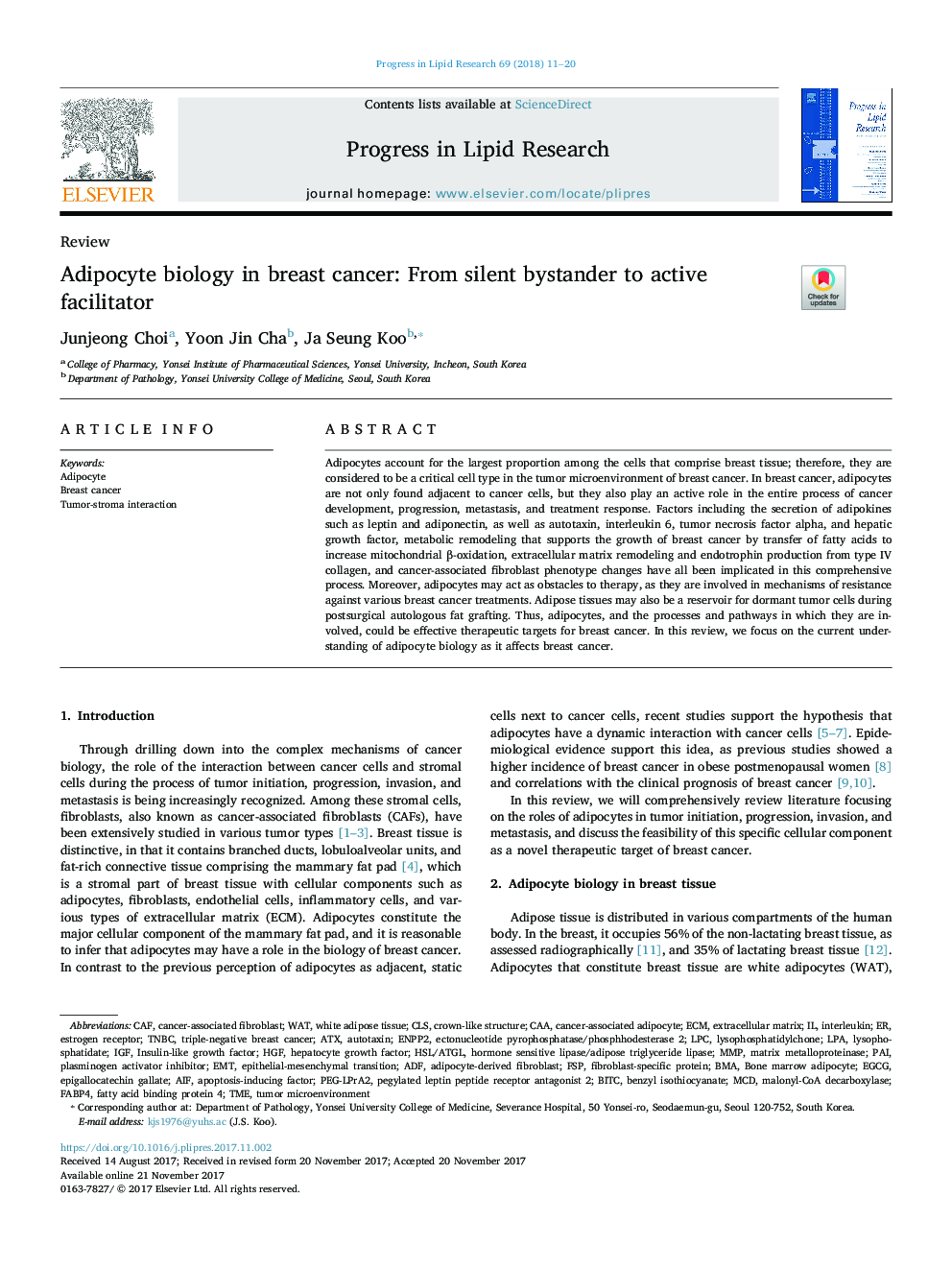| Article ID | Journal | Published Year | Pages | File Type |
|---|---|---|---|---|
| 8358814 | Progress in Lipid Research | 2018 | 10 Pages |
Abstract
Adipocytes account for the largest proportion among the cells that comprise breast tissue; therefore, they are considered to be a critical cell type in the tumor microenvironment of breast cancer. In breast cancer, adipocytes are not only found adjacent to cancer cells, but they also play an active role in the entire process of cancer development, progression, metastasis, and treatment response. Factors including the secretion of adipokines such as leptin and adiponectin, as well as autotaxin, interleukin 6, tumor necrosis factor alpha, and hepatic growth factor, metabolic remodeling that supports the growth of breast cancer by transfer of fatty acids to increase mitochondrial β-oxidation, extracellular matrix remodeling and endotrophin production from type IV collagen, and cancer-associated fibroblast phenotype changes have all been implicated in this comprehensive process. Moreover, adipocytes may act as obstacles to therapy, as they are involved in mechanisms of resistance against various breast cancer treatments. Adipose tissues may also be a reservoir for dormant tumor cells during postsurgical autologous fat grafting. Thus, adipocytes, and the processes and pathways in which they are involved, could be effective therapeutic targets for breast cancer. In this review, we focus on the current understanding of adipocyte biology as it affects breast cancer.
Keywords
FABP4ENPP2Tumor-stroma interactionFSPBITCBone marrow adipocyteAutotaxinHGFLPAMCDATXCLSLPCBMATMEEGCGECMADFCAAIGFCAFTNBCMMPmalonyl-CoA decarboxylaseAdipocyteAIFepigallocatechin gallateinterleukinPAIplasminogen activator inhibitorWhite adipose tissueBenzyl isothiocyanateEMTBreast cancerTriple-negative breast cancerapoptosis-inducing factorHepatocyte growth factorInsulin-like growth factorcancer-associated fibroblastLysophosphatidateExtracellular matrixmatrix metalloproteinaseTumor microenvironmentfatty acid binding protein 4WATEpithelial-mesenchymal transitionEstrogen receptor
Related Topics
Life Sciences
Agricultural and Biological Sciences
Food Science
Authors
Junjeong Choi, Yoon Jin Cha, Ja Seung Koo,
